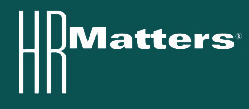Interestingly Innovative Interview Tactics
Interviewing tactics have changed dramatically in the past few years. Traditional interviewing tactics have taken to the way-side, as more flamboyant tactics are becoming the norm. As a talent leader, you know that interviews are one of the most nerve-wracking situations most adults can imagine. Now, go ahead and say that not only are you conducting an interview, but it’s an interview for Google. You applicant can go ahead and bring out the handkerchiefs, sweat pads, and anti-stuttering lozenges because there aren’t many candidates that can handle such a major interview with out breaking a sweat. What kind of tactics do big companies like Google use to find the right fit for their company culture? There are a few pointers in a recent article from The Wall Street Journal.com author William Poundstone that could come in handy when you conduct that big interview.
Larger, more notorious companies like Google’s interviewers throw the oddball questions. A word of advice for an applicant would be to take a breath, consider your response, and respond creatively. This new tactic forces interviewees to think on their feet, and offer a genuinely personal response … it’s often not about the right answer, but how the applicant chooses to respond. This is the way that organizations like Google find the right candidate for their organization. It doesn’t have to be the brightest crayon in the box or the most luscious berry in the bunch. It’s about the right fit.
That’s tougher than it sounds. And the dilemma Google faces is emblematic of our depressed knowledge economy. We live in an age of desperation. But in our current economic climate, employee screening has become more, not less, important.
While interviewing, remember that being a whiz in any one industry doesn’t necessarily mean that the candidate is best for the position. Does being a whiz imply that the individual has passion and a desire to expand their knowledge about the organization or industry? Whole Foods sometimes asks during interviews what the applicant’s last meal would be. Expedia asks where the candidate would go camping. A response with depth and passion means that the candidate knows about the subject and has a desire to continue learning about said subject. With a flooded talent pool, hiring strategies must be a little more fine-tuned in order to find and hire the right fit for the organization.
Asking crazy questions during an interview doesn’t guarantee that having a candidate that can fire back crazy answers will be the right fit for the job. However, straying from the traditional job interview is a good thing … it isn’t the 1950’s and being funky and creative with interviews can benefit your organization. Traditional interviews don’t work that well anyway, and there’s research proving it. First impressions go a long way, and traditional interviews ended up being based mainly on that first initial interaction. Asking less formal questions lets the candidate show more of themselves. Check out these five questions asked during interviews at Google:
1. What’s the next number in this sequence: 10, 9, 60, 90, 70, 66 … ?
2. You’re in a car with a helium balloon on a string that is tied to the floor. The windows are closed. When you step on the gas pedal, what happens to the balloon – does it move forward, more backward, or stay put?
3. Using only a four-minute hourglass and seven-minute hourglass, measure exactly nine minutes – without the process taking longer than nine minutes.
4. A book has N pages, numbered the usual way, from 1 to N. The total number of digits in the page numbers is 1,095. How many pages does the book have?
5. A man pushed his car to a hotel and lost his fortune. What happened?
The number of Americans out of work is vast, that being said, with all of those candidates rushing around in hopes of attaining a job, many will come across similarly bizarre interview questions. This is not a scare tactic, it’s about making the candidate think outside of the box and take a mental leap. Innovative solutions to problems is what will move your business and the economy forward, and many organizations are looking for that innovative problem solver. Job applicants need to dig and do a little research about the organization they are applying to … You want them to have the low-down about what kind of quirky, unusual things your organization is into and consider the candidate who was prepared to be asked about those things in the interview. To read more about interesting interview tactics from organizations like Google, click here to read the full article.
